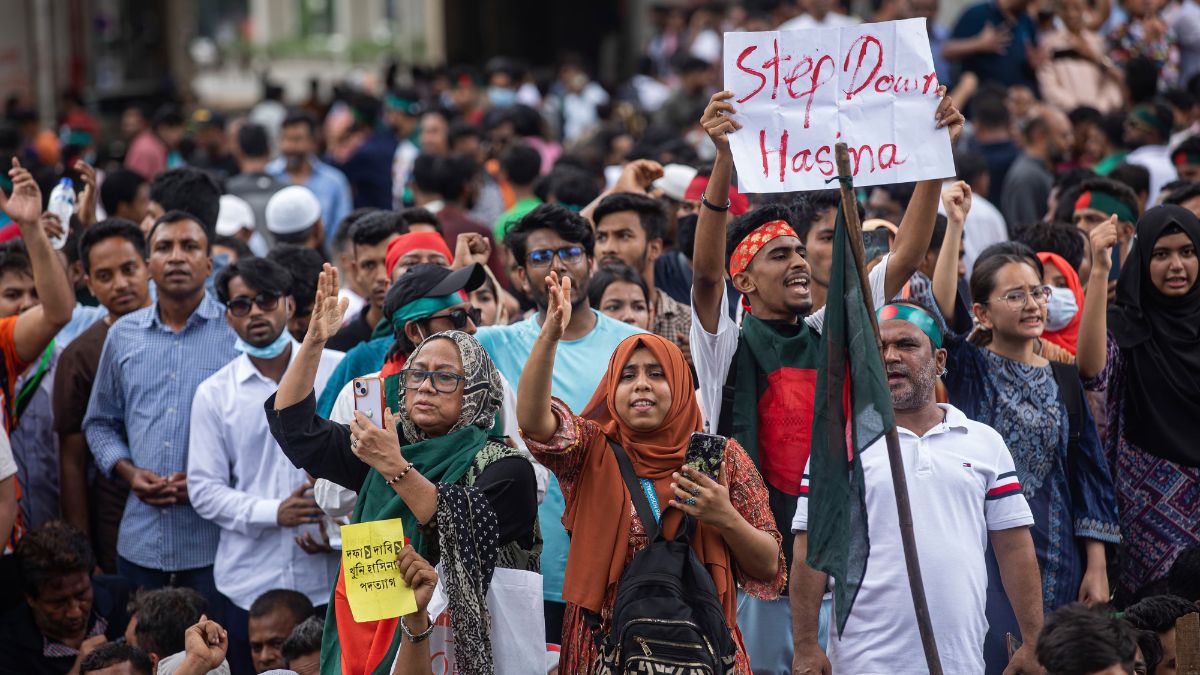A wave of deadly protests in Bangladesh has culminated in the tragic end of Prime Minister Sheikh Hasina’s autocratic rule, with at least 450 people reported killed within a month. The protests, which began as a student-led movement, rapidly gained momentum and led to widespread unrest across the nation.
The initial demonstrations were sparked by students demanding educational reforms and better job opportunities. However, the movement quickly expanded to encompass broader grievances against the 76-year-old Prime Minister Sheikh Hasina’s government, including allegations of corruption, human rights abuses, and lack of political freedoms.
As the protests escalated, violent clashes between demonstrators and security forces became increasingly common. Reports of excessive use of force, including live ammunition and tear gas by police, contributed to the rising death toll. Eyewitnesses described scenes of chaos and panic as peaceful protests turned into deadly confrontations.
“The situation escalated beyond anyone’s control,” said Ahmed Rahman, a student leader who witnessed the protests. “What started as a call for educational reform became a nationwide demand for justice and an end to autocratic rule.”
International human rights organizations have condemned the violence, calling for an independent investigation into the government’s response to the protests. “The excessive use of force against protesters is unacceptable and must be thoroughly investigated,” said Amnesty International in a statement.
The culmination of the unrest led to Prime Minister Sheikh Hasina’s resignation, marking the end of her lengthy tenure in power. Hasina, who has been a dominant figure in Bangladeshi politics for decades, faced mounting pressure from both domestic and international fronts to step down.
Nobel laureate Muhammad Yunus is all set to lead the interim government of Bangladesh as the oath ceremony is scheduled for tonight. Political analysts suggest that this period will be crucial for Bangladesh’s future, as the nation grapples with the aftermath of the protests and the transition to a new government.

